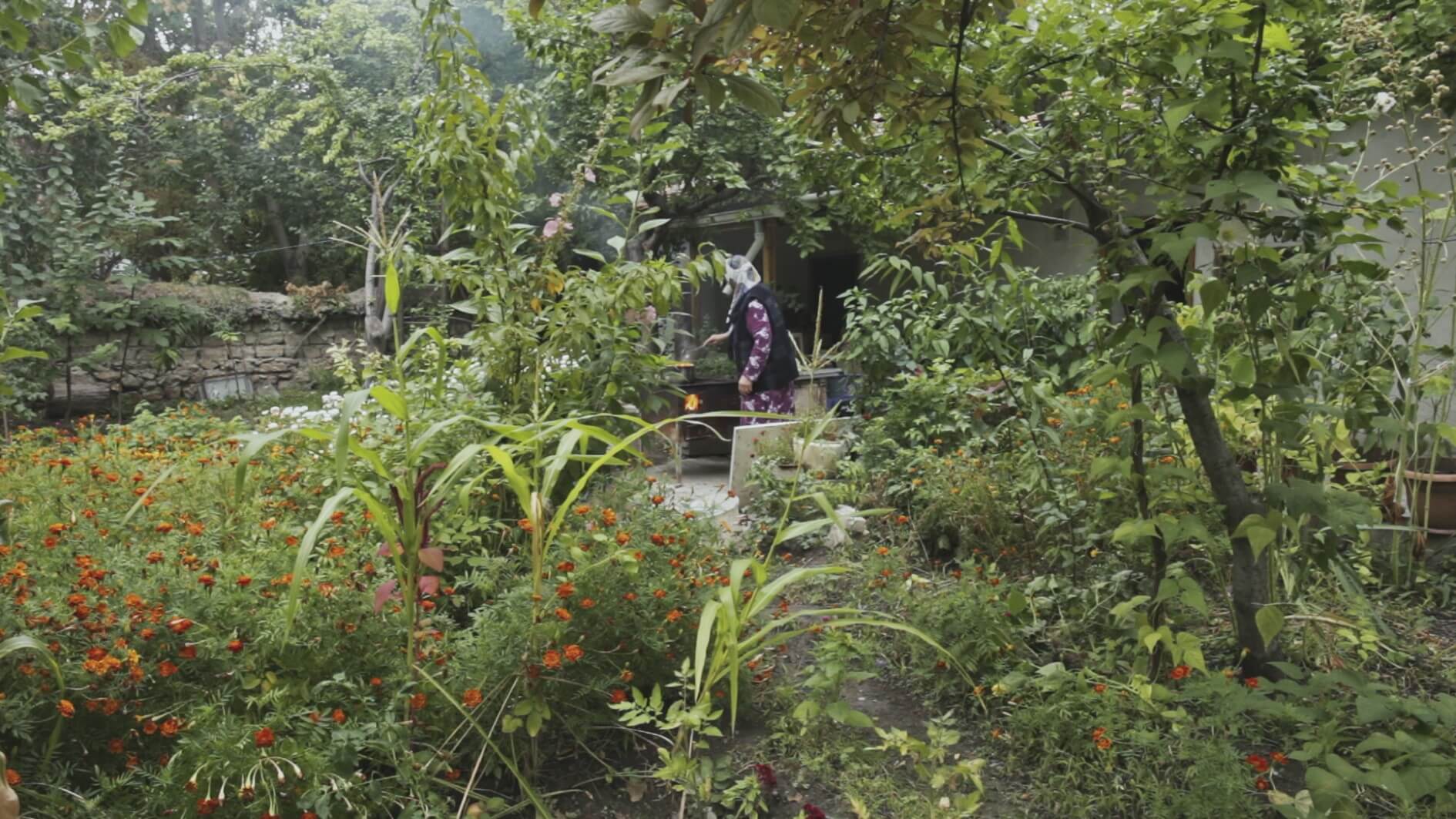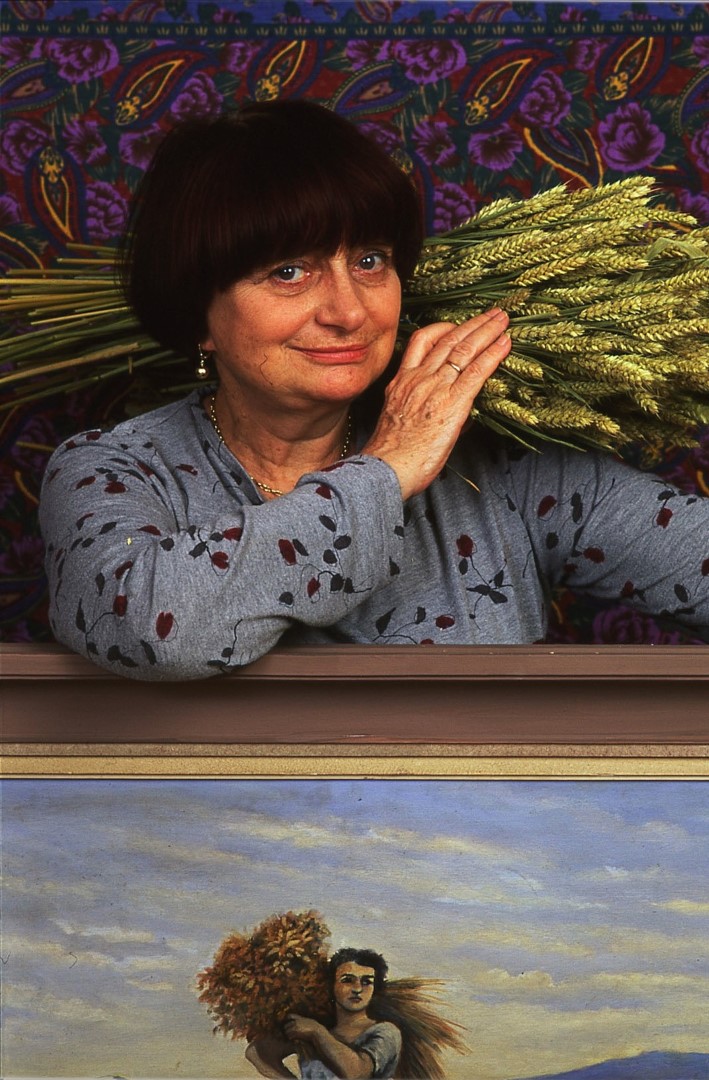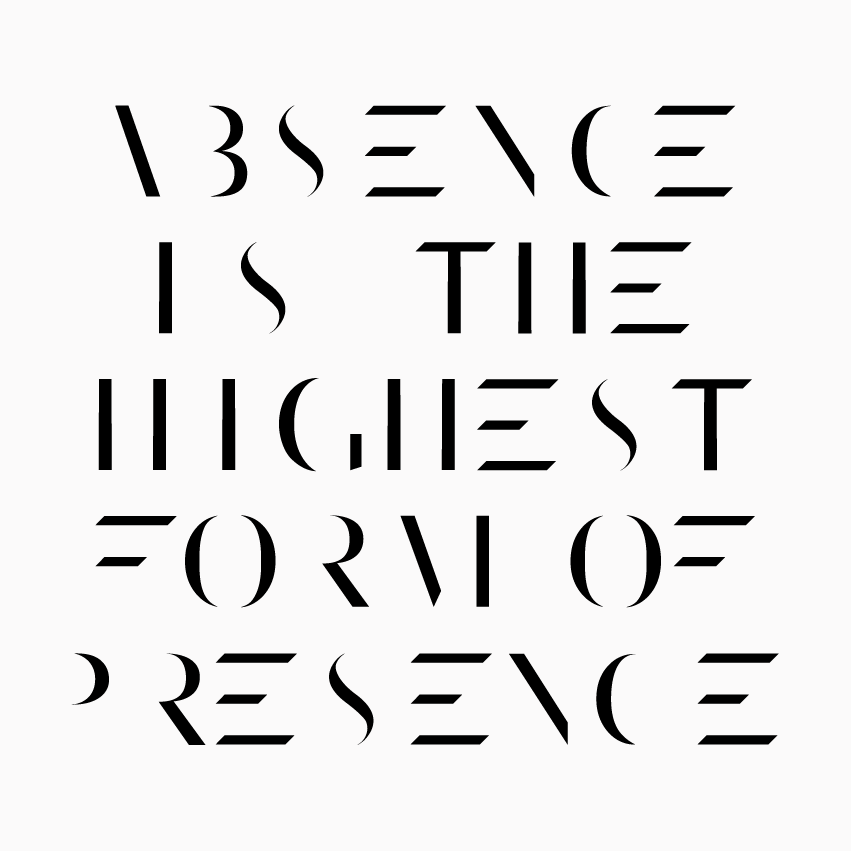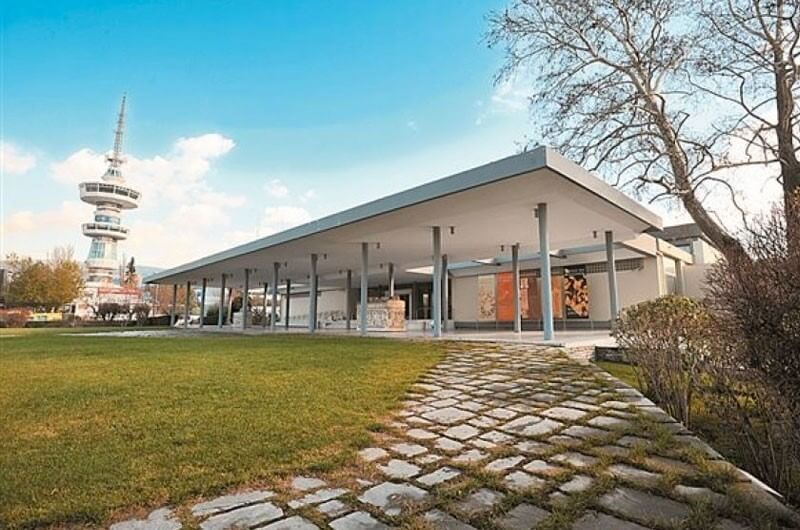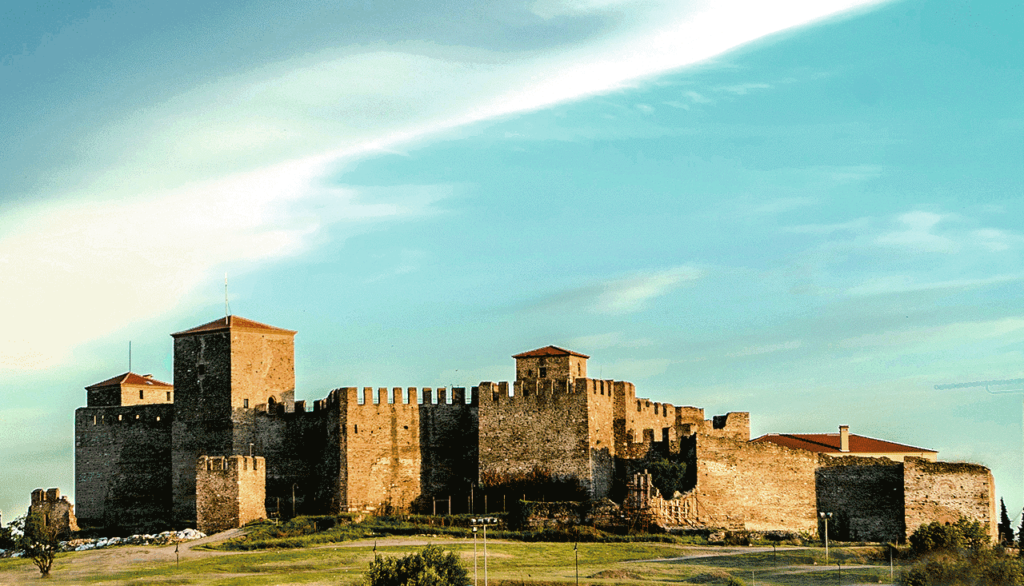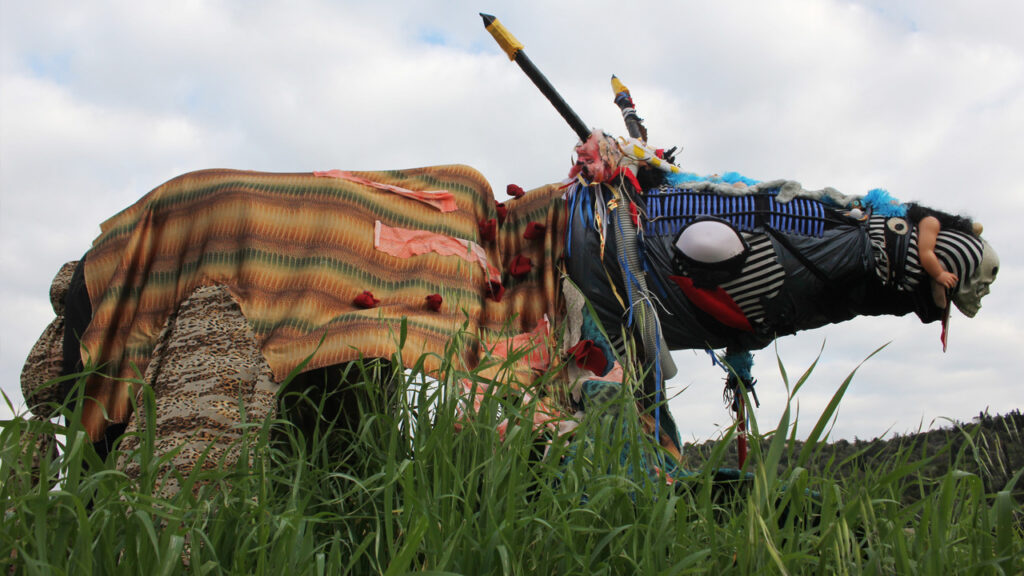

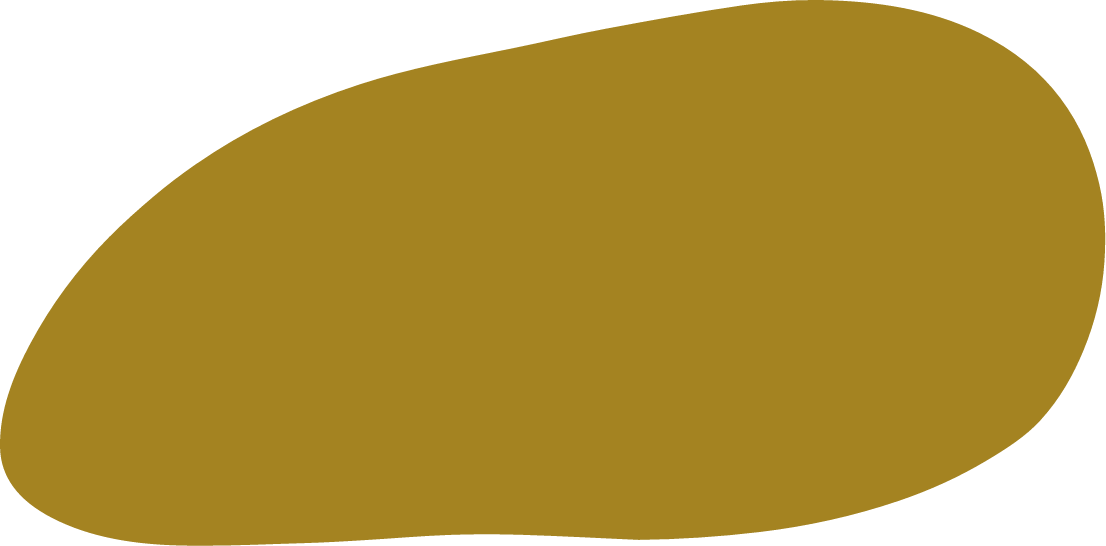

MAIN EXHIBITION
BEING AS COMMUNION
04.03 –
21.05.2023
MOMus-Museum of Contemporary Art, Archaeological Museum of Thessaloniki, Museum of Byzantine Culture, National Bank of Greece Cultural Foundation, Hamidie – Islahane Cultural Venue, Pasha's Gardens, Eptapyrgio, Yeni Jami, Glass Box “Scultures’ Garden” (seefront area), Thessaloniki Concert Hall (building M2)
The main exhibition of the 8th Thessaloniki Biennale of Contemporary Art, titled Being as Communion, is a reflection on co-existence. Co-existence with those around us and co-existence with the more-than-human, with the critters, forests, with the gardens of our earth, but also with the shadows of our past, with our dead and with those to come.
The exhibition constitutes an attempt to shine a soft light through the current fog of uncertainty and barrage of dark predictions. It asks whether we can imagine new forms of being, new ways of living, but with the understanding that we can only truly do so in collaboration.
The exhibition traces past artistic practices that envision ways of working with the earth, create radical pedagogical tools, pioneer ecological activism and broaden the horizon of how we can live together. Contemporary works foretell multiple forms of communion: with the fragile past of our host city, with forests, with the soil, with animals, and with one another. Understanding of indeterminacy, the twenty-eight artists and artist collectives taking part in the exhibition probe, question, and offer their responses. These contain ruptures, seek realignment of injustice and offer tentative understanding, nurturing and care. The artists imagine multiple forms of organizing, of living and of loving.
Being as Communion testifies to the challenges of imagining possible futures for a city so rooted in the past. Thessaloniki, with its 3000-year-old history, Hellenistic, Roman-Byzantine, Ottoman, contemporary, with all its highlights and failures, allows for a more expansive understanding of time. How do we talk about living together, of our relationship with futurity, in environments and cities whose past ‘togethers’ have all but vanished?’
Being as Communion finds affinities with the ghosts of the city, seeking to live with them and narrate their stories anew. It calls for a rethinking of the co-existence between living and dead, and with the human-animal-forest-plant world around us. Being as Communion asks us to take stock of how the living world around us makes us feel, and how we in turn make it feel. So that in the time we have, we can cherish and celebrate the frictions and joys of mutual living.
Being as Communion unfolds in ten different host sites that function as small exhibition hubs throughout the city of Thessaloniki. Each site links with a particular period of the city’s history.
Artists: Jumana Emil Abboud, Campus Νovel, Aslı Çavuşoğlu, Thanasis Chondros & Alexandra Katsiani, COYOTE, Cevdet Erek, Baruchello Gianfranco, Phoebe Giannisi, Piero Gilardi, Akira Ikezoe, Vasso Katraki, Jumana Manna, Ahmed Morsi, Hira Nabi, Abraham Onoriode Oghobase, Yiannis Papadopoulos, Alexandra Paperno, Angelo Plessas, Iva Radivojević, Kostas Roussakis, Corinne Silva, Panos Sklavenitis, Sky Hopinka, Agnès Varda, Ana Vaz, Vessel (Navine G.Dossos and James Bridle), Paky Vlassopoulou, Bo Zheng
Curator: Maria-Thalia Carras
Assistant curators: Foteini Salvaridi & Manto Psarelli
Exhibition design: Evita Fanou
MOMus-Museum of Contemporary Art, Archaeological Museum of Thessaloniki, Museum of Byzantine Culture, National Bank of Greece Cultural Foundation, Hamidie – Islahane Cultural Venue, Pasha's Gardens, Eptapyrgio, Yeni Jami, Glass Box “Scultures’ Garden” (seefront area), Thessaloniki Concert Hall (building M2)
Artists: Jumana Emil Abboud, Campus Νovel, Aslı Çavuşoğlu, Thanasis Chondros & Alexandra Katsiani, COYOTE, Cevdet Erek, Baruchello Gianfranco, Phoebe Giannisi, Piero Gilardi, Akira Ikezoe, Vasso Katraki, Jumana Manna, Ahmed Morsi, Hira Nabi, Abraham Onoriode Oghobase, Yiannis Papadopoulos, Alexandra Paperno, Angelo Plessas, Iva Radivojević, Kostas Roussakis, Corinne Silva, Panos Sklavenitis, Sky Hopinka, Agnès Varda, Ana Vaz, Vessel (Navine G.Dossos and James Bridle), Paky Vlassopoulou, Bo Zheng
Curator: Maria-Thalia Carras
Assistant curators: Foteini Salvaridi & Manto Psarelli
Exhibition design: Evita Fanou
The main exhibition of the 8th Thessaloniki Biennale of Contemporary Art, titled Being as Communion, is a reflection on co-existence. Co-existence with those around us and co-existence with the more-than-human, with the critters, forests, with the gardens of our earth, but also with the shadows of our past, with our dead and with those to come.
The exhibition constitutes an attempt to shine a soft light through the current fog of uncertainty and barrage of dark predictions. It asks whether we can imagine new forms of being, new ways of living, but with the understanding that we can only truly do so in collaboration.
The exhibition traces past artistic practices that envision ways of working with the earth, create radical pedagogical tools, pioneer ecological activism and broaden the horizon of how we can live together. Contemporary works foretell multiple forms of communion: with the fragile past of our host city, with forests, with the soil, with animals, and with one another. Understanding of indeterminacy, the twenty-eight artists and artist collectives taking part in the exhibition probe, question, and offer their responses. These contain ruptures, seek realignment of injustice and offer tentative understanding, nurturing and care. The artists imagine multiple forms of organizing, of living and of loving.
Being as Communion testifies to the challenges of imagining possible futures for a city so rooted in the past. Thessaloniki, with its 3000-year-old history, Hellenistic, Roman-Byzantine, Ottoman, contemporary, with all its highlights and failures, allows for a more expansive understanding of time. How do we talk about living together, of our relationship with futurity, in environments and cities whose past ‘togethers’ have all but vanished?’
Being as Communion finds affinities with the ghosts of the city, seeking to live with them and narrate their stories anew. It calls for a rethinking of the co-existence between living and dead, and with the human-animal-forest-plant world around us. Being as Communion asks us to take stock of how the living world around us makes us feel, and how we in turn make it feel. So that in the time we have, we can cherish and celebrate the frictions and joys of mutual living.
Being as Communion unfolds in ten different host sites that function as small exhibition hubs throughout the city of Thessaloniki. Each site links with a particular period of the city’s history.
MAP
VENUES
EXHIBITIONS
PROJECTS
09.02 –
30.04.2023
09.02 –
30.04.2023
09.02 –
30.04.2023
EVENTS
Sunday, May 14, 2023, 14:00
Saturday 13 May, 21:00
Friday 12 May, 21:00
Sunday, May 14, 2023, 14:00
Saturday 13 May, 21:00
Sunday, May 14, 2023, 14:00
Saturday 13 May, 21:00
Friday 12 May, 21:00
BIENNALE 8
GEOCULTURA
The exchange of ideas, values and norms, within a context of a multitude of cultural, geographical and political debates and conflicts, is at the core of the concept of 'geoculture' in the political and social sciences. This is the rationale behind the decision of the 8th edition of Thessaloniki's Biennale of Contemporary Art to turn its attention to the terms 'land' (“geo-”) and 'culture', connecting the cultivation of land with culture, understood as a set of resources, texts and practices which are available to people, helping them better understand and more effectively act in the world. It explores issues of memory, history, and managing both the natural and man-made environment, under the conditions of the climate, economic and refugee crises.
The participating artists focus on histories of places and people; they touch upon issues of identity, ethics, equity and sustainability; they suggest improvised ecological technologies; they explore the potential for collective existence and question the systems by which production, consumption and profitability are organized; they put into practice ideas of resource sharing and equitable living, as well as ways of reassessing the commodification of human and non-human life. Through their works, imagination becomes a crucial factor in facilitating the audience to imagine different versions of the future.
Firmly believing that art broadens our understanding of the world, the 8th Biennale seeks not only to raise environmental awareness, but also to multiply future possibilities, with new claims and visions. The 8th Thessaloniki Biennale of Contemporary Art aspires to serve as a means of communication with the world, as an act of justice and freedom, of trust and progressive thinking.
The Thessaloniki Biennale of Contemporary Art is financed by Greece and the European Union (European Regional Development Fund) is organised by MOMus and implemented by MOMus-Museum of Contemporary Art-Macedonian Museum of Contemporary Art and State Museum of Contemporary Art Collections.


The participating artists focus on histories of places and people; they touch upon issues of identity, ethics, equity and sustainability; they suggest improvised ecological technologies; they explore the potential for collective existence and question the systems by which production, consumption and profitability are organized; they put into practice ideas of resource sharing and equitable living, as well as ways of reassessing the commodification of human and non-human life. Through their works, imagination becomes a crucial factor in facilitating the audience to imagine different versions of the future.
Firmly believing that art broadens our understanding of the world, the 8th Biennale seeks not only to raise environmental awareness, but also to multiply future possibilities, with new claims and visions. The 8th Thessaloniki Biennale of Contemporary Art aspires to serve as a means of communication with the world, as an act of justice and freedom, of trust and progressive thinking.
The Thessaloniki Biennale of Contemporary Art is financed by Greece and the European Union (European Regional Development Fund) is organised by MOMus and implemented by MOMus-Museum of Contemporary Art-Macedonian Museum of Contemporary Art and State Museum of Contemporary Art Collections.

![Gianfranco Baruchello Agricola Cornelia S.p.A. Raccolto delle barbabietole [Agricola Cornelia S.p.A. The sugar beets harvest] 1975, Photographic documentation. Courtesy Fondazione Baruchello, Rome](https://biennale8.gr/wp-content/uploads/2022/12/1.Agricola-Cornelia-S.p.A.Raccolto-delle-barbabietole.The-sugar-beets-harvest.jpeg)
